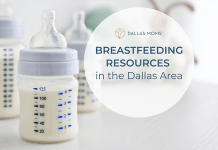 What Happened to Our Village?
What Happened to Our Village?
We once lived in supportive villages that rallied around expectant and new mothers to impart wisdom, assume household responsibilities, care for older children, and encourage breastfeeding. Today, many mothers live in isolation in sprawling metroplexes far from family and support. Maternal and infant care providers are left to stand in that gap.
Unfortunately, that doesn’t always happen in our centralized medical model. But there is an entire network of providers outside “the system” who serve women and infants in ways the village once did.
Midwives
Midwifery care differs from obstetric care in several ways. Most midwives offer hour-long clinic appointments throughout pregnancy and often involve siblings in the process. Midwives may practice in a hospital, birth center, or even your home. They offer extensive education on pregnancy and the birth process. This close personal bond often isn’t possible in busy obstetric practices. This relationship also extends through the six-week postpartum visit. In that time, midwives often visit their patients multiple times to ensure that mother and baby are doing well.
Birth Doulas
Doulas offer support, guidance, and education throughout pregnancy. You would never run a marathon without training, so why would you enter birth without preparation? Doulas may also serve as an advocate and aid in decision making during labor. They are a crucial part of your birth team alongside midwives and OBs. Doulas do not provide medical care or replace your labor partner, but they are an invaluable resource, nevertheless. By suggesting positions to aid in the labor and delivery processes or providing natural pain-relieving measures, doulas can often reduce the length of labor and risk of c-section. Their emotional support can also decrease the experience of pain. Who doesn’t want that?!
Postpartum Doulas
Postpartum doulas support families after delivery. This could mean anything from help with meal prep to older siblings. Depending on training and experience, some postpartum doulas may provide specialized services as nutrition guidance, lactation support, or car seat education. Postpartum doulas smooth the transition new families experience as they adjust to their new arrival.
Lactation Consultants
Lactation consultants now fill another void left by the disintegration of village culture. Girls once grew up watching their mothers and aunts nursing their younger siblings and cousins. As the popularity of breastfeeding has fluctuated in our culture, I’ve spent many hours in lactation home visits dispelling myths, instilling confidence, emphasizing norms, and educating on the physiology of breastfeeding. Our society has done women a profound disservice in degrading their faith in their own bodies to perform a basic biological function. Now, lactation consultants, doulas, and midwives can help undo this damage.
Surviving Postpartum
I will leave you with a few tips for surviving and thriving in postpartum:
- My midwife Kiesha Baker told me a great rule of thumb: Two days in the bed and two weeks “around the bed.” Remember that you have an internal wound where your placenta attached. Whether you look and feel recovered or not, you may still be healing internally. Take your time and rest! Many cultures put new mothers to bed for a month after delivery!
- Make family role assignments prior to delivery. Everyone can have a job, even siblings. Toddlers love to deliver wipes and diapers. Ask me how I know!
- Everyone who visits postpartum can bring a meal and/or do a chore such as folding laundry or doing dishes. Visitors should only hold the baby if this is helpful and allows the new mother to shower or nap if she wishes.
- Set up a meal train that lasts several weeks, if not longer. Anyone who asks how they can help should be given this link. For those unable to make or send a meal, meal delivery services offer gift cards. Here are some favorite Meal Train ideas to get you started.
- Get a good straw water bottle; the bigger the better. Research has shown that you will drink more water with a straw cup than one without a straw. The fewer trips you must make to the kitchen to refill this cup, the more water you will drink.
- Get a baby carrier. Being hands free makes a world of difference and lets baby be “held” while you get things done once you are recovered. My favorite ring sling is handmade by Melody at The Laughing Willow in Bishop Arts.
- Call a lactation consultant and postpartum doula! Be Her Village allows mothers to “register” for services as baby shower gifts. Replace impractical outfits and plastic toys with services that will truly help you!
Find out more about having a baby in Dallas: Dallas Moms Pregnancy & Postpartum Support Guide
I hope this information was truly helpful. If you are not expecting, share this with a friend or family member who is. We must spread the word that there is help available for mothers and it is ok to ask for it. We must recreate the village, or we will all suffer. For more resources, visit my website. You will find classes, services, product recommendations, and money saving coupon codes. I am also always happy to make referrals for other service providers. Every mother deserves a team of people all working together to support her.













